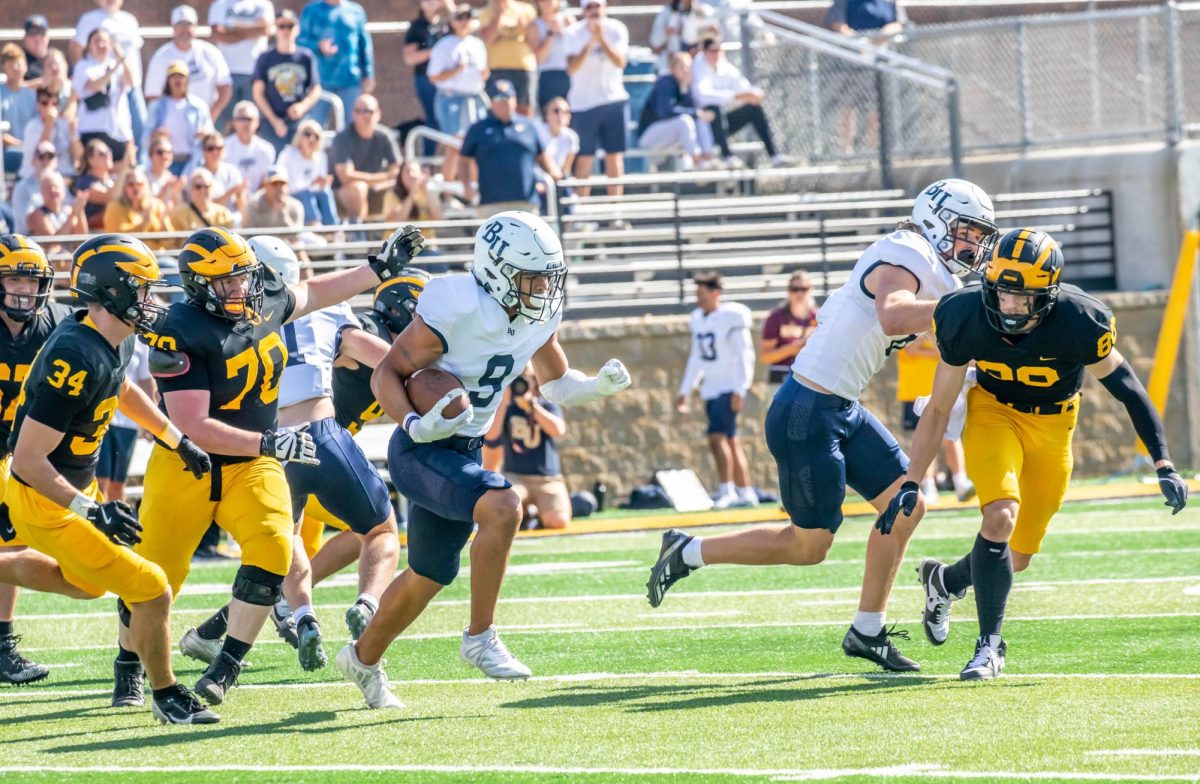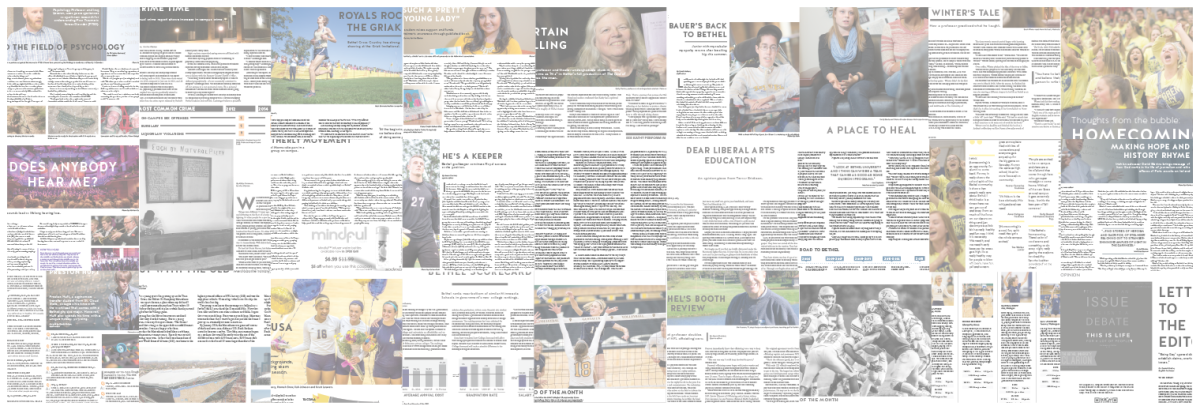A variety of Christian denominations represent the 13 colleges and universities within the MIAC conference, all of which present different campus lifestyle implications for students. The Clarion investigated: How has the theological standing of your school shaped your college experience, and/or how prevalent is this particular denomination within campus life?
By Anna Bauer | News Reporter
St. Catherine University
Ashley Wadman, a junior physical therapy major at St. Catherine’s University, explained how attending a Catholic school has shaped the community aspects of campus life. While Wadman was raised primarily Lutheran and did not choose to attend St. Kate’s because of its religious affiliations, she nonetheless enjoys the faith-based opportunities provided for students such as chapel services and several required biblical/social justice classes. Wadman explained that many of the professors/nuns on campus have gotten into trouble on several occasions for supporting the LGBTQ community – she is surprised by how liberal campus life has become over the past few years. She stated that this is largely what makes St. Kate’s a “friendly and generally accepting environment,” but that sometimes an overly liberal tone on campus can actually lead to disrespect for other members who decide to stay committed to the more stringent Catholic regulations which the university was founded upon.
University of St. Thomas
Adam Weinzetl, a senior social entrepreneurship major at St. John’s University, feels that attending a primarily Catholic institution makes a huge difference in the way his college life has shaped out thus far. Weinzetl, along with Sawyer Phillips, a senior justice and peace Studies and Spanish major, feel that the feasible access to opportunities for religious learning and growth affects everyday life on campus for the majority of students. However, both interviewees agreed that it is largely up to students how much they want to grow in their faith; the university does an effective job of providing such opportunities in a way that enables students themselves to actively choose (or not choose) to further their religious development.
“’What does it mean to be a Catholic University?’ seems to be the big question on campus,” Phillips said.
Both Weinzetl and Phillips agreed that this query seems to serve as the foundation for the university’s rules, activities, academic courses and overall growth as a Christian community.
Macalester College
Freshman Sofia Jones had to think for a moment before she could say which religious affiliation represented Macalester College. After a few moments of pondering, she stated that she was fairly certain that the campus was originally Presbyterian, but is now more secularized in nature. Jones affirmed that some chaplain services are available on campus throughout the year, but that the prayers are more generalized as opposed to being focused on specific rituals. This, she explained, is largely due to the fact that there is a wide range of religious denominations present on campus, so Macalester’s spiritual events and programs seek to accommodate for this variety.
Hamline University
Though Hamline University was founded through a Methodist affiliation, senior sociology and social justice major Alyssa Volkmann claims that this theological standpoint is not necessarily a prevalent aspect for day-to-day life on campus.
“We generally go by the ‘do all the good you can’ Methodist ideal,” Volkmann said, “but there are a lot of other religious denominations represented here too.”
When thinking about spiritual growth opportunities on campus, Volkmann mentioned Spiritual Scholars, an all-year program that hosts worship and religious movement events on campus, as well as occasional chaplain services, and social justice panels. She explained that, in general, the campus seems to be more focused on social justice approaches than religious ones.
Concordia University
Freshman vocal studies major and theater minor Nicole Kotila does not feel significantly affected by Concordia’s Lutheran roots. Kotila describes the overall feeling on campus as “very open-minded and accepting” with little pressure to adopt specific beliefs.
“Being a liberal arts college, there seems to be a more relaxed feel,” Kotila said. “Religion isn’t really something that’s pushed on campus unless students really want to go out and pursue it themselves. Overall, we just want a diverse group of people with a wide range of beliefs.”
This is not to say, however, that Concordia’s campus does not include opportunities for students to grow in their spiritual lives if they so choose: Kotila provided the example of her choir director and his desire to “offering up dedications to the Lord” through personally-written music about Christ’s sacrifices.
“There are definitely ways to seek religion here,” Kotila claimed. “But there is also plenty of the student body that is not actively pursuing religion, as well.”


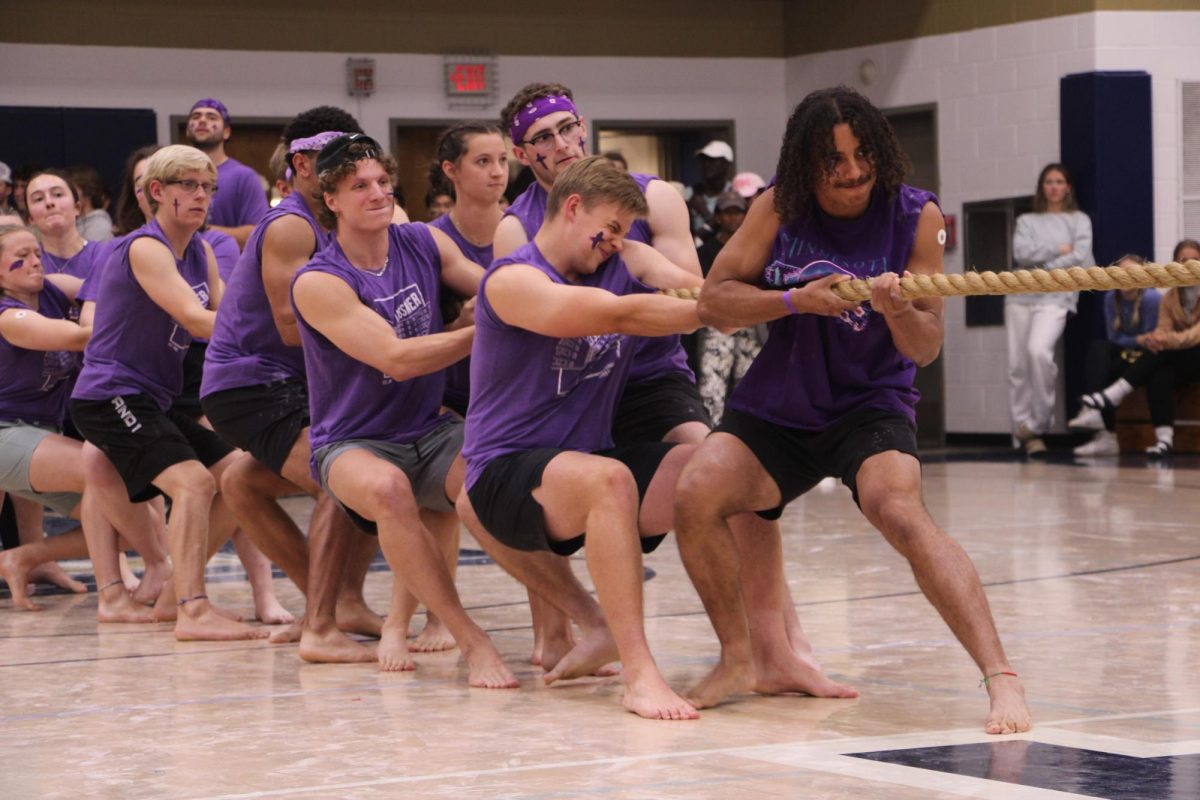
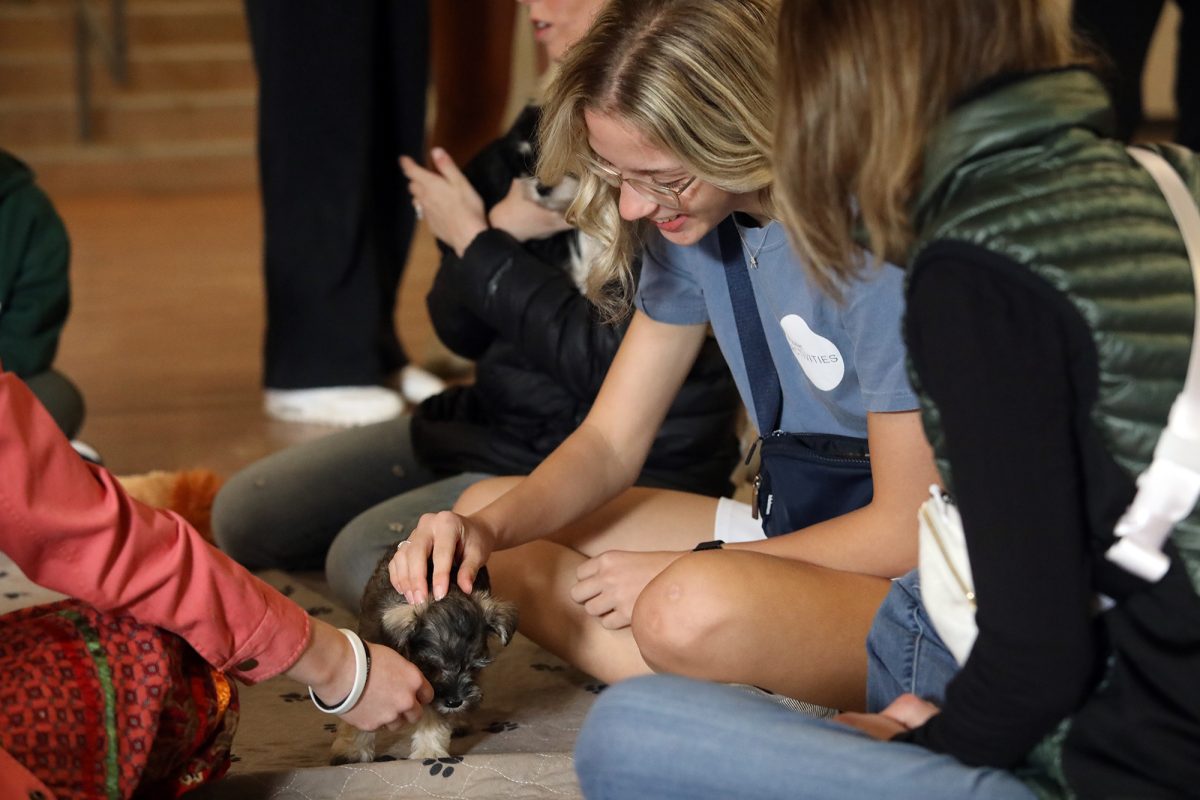
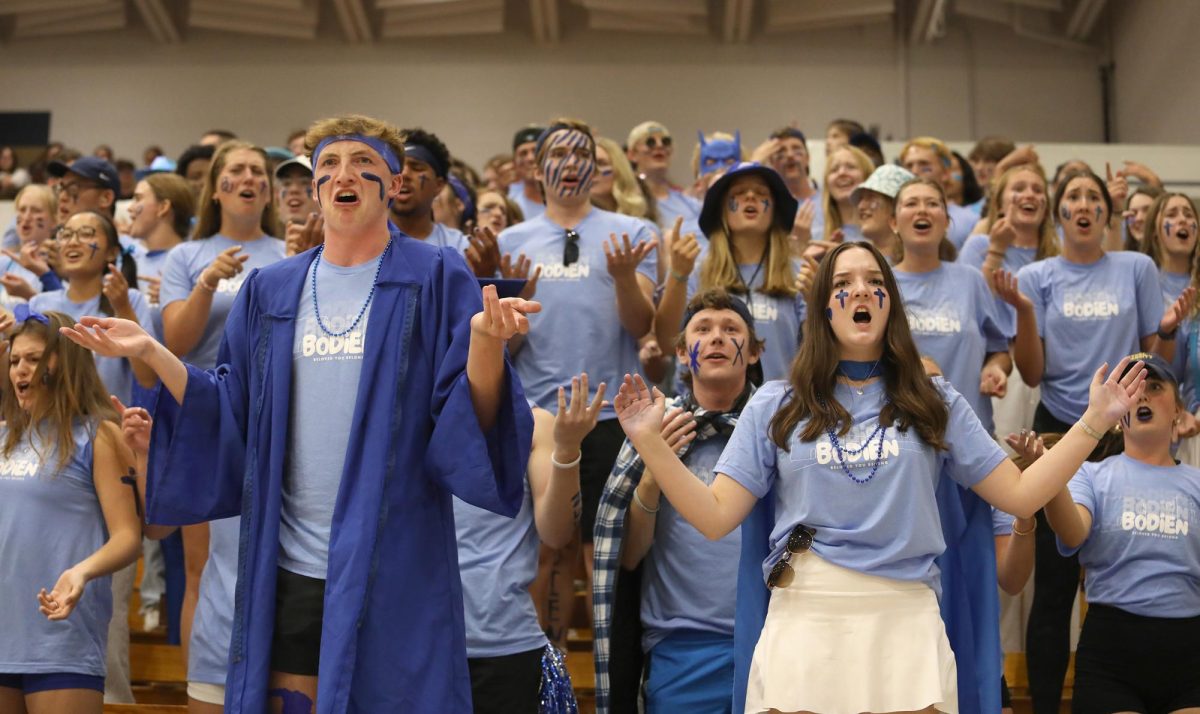

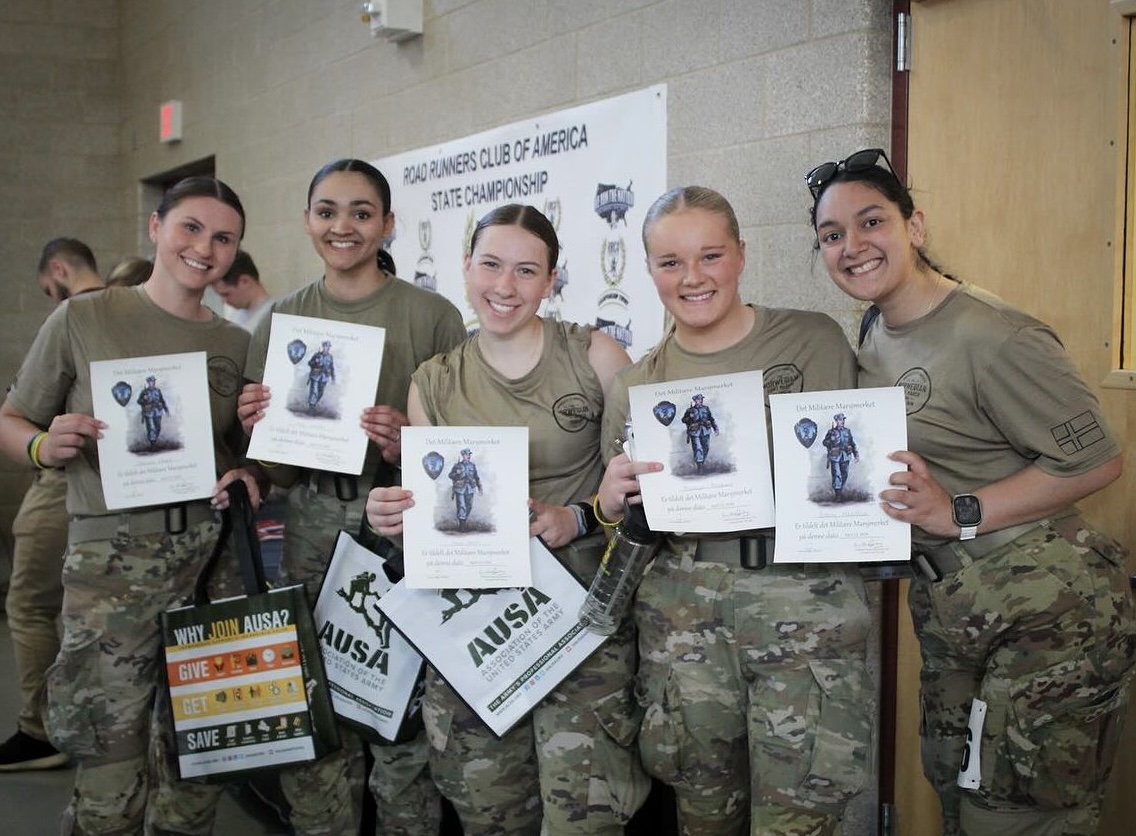

![Senior Bethel receiver Micah Niewald sheds a would-be tackler on his way to a touchdown in the Royals’ 73-8 win over Augsburg Saturday. Niewald sped his way to two touchdowns in the win, tallying 62 yards after the catch between the two scores. “Knowing I can outrun the guy that’s chasing me is a big thing,” Niewald said. “That’s going back to [strength and conditioning] Coach Meyer and everything we do in the summer and off-season.” | Photo by Carl Schumland, Bethel Athletics](https://thebuclarion.com/wp-content/uploads/2024/10/3J9A1632-1200x800.jpg)

